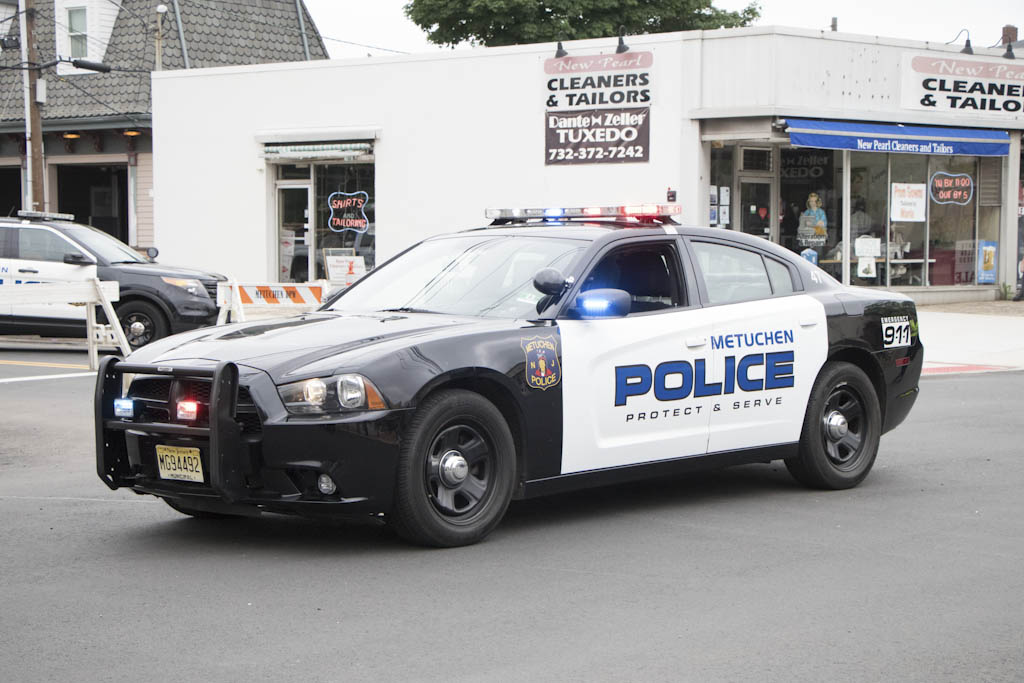METUCHEN – For Police Chief Arthur Flaherty, a single seat police dispatch was essentially “a bad situation” waiting to happen.
“We have evolved from a town of 12,800 to a town of 17,000 right now,” he said. “We are putting in 240 more condos and a 30-acre park. We are going to be near [a population of] 20,000 in two and a half square miles. It’s dense and with Edison growing exponentially … we’ve gotten very busy.”
In a situation like Superstorm Ida in 2021 and Sandy in 2012, the single seat dispatcher handled 500 or so calls. Fortunately, the department did not miss a call; however, a 911 kickover call came in where a guy died of a heart attack during Sandy.
“It wasn’t anyone’s fault … it was just the sheer volume of calls,” Flaherty said.
On Aug. 1, the borough transitioned from a single seat police dispatch to a shared service with Rutgers University for 911 emergency communications and radio dispatching services.
And though the transition has had its expected glitches, Flaherty said public safety has “never been compromised.”
“Our radios work,” he said, noting with the shared service, the department also has a new radio system on the county band and has a new CAD (computer aided dispatch).
In February, the Borough Council approved a resolution for the 10-year shared service with Rutgers at an initial implementation cost of $100,000, an initial annual cost of $270,852, plus an annual maintenance fee not to exceed $40,000 in the initial year of the agreement.
The Council approved a bond ordinance appropriating $3.2 million and authorizing $2.6 million in bonds for the shared service as well as other improvements and equipment.
Flaherty said the shared service “frees up his officers.”
“It frees up my supervisors to put them on other details,” he said. “We can do more to address the town concerns as opposed to just answering calls.”
And with a single seat police dispatch, Flaherty said often an officer would be sitting at the desk on overtime when the borough could not get a dispatcher on the desk.
The borough saw a big turnover with police dispatch over the years because people couldn’t make a career out of the job.
“If you can’t pay well, it’s not a career, so you are always training someone new,” he said.
And with a police sergeant often out on the road, the liability on the desk was immense with the dispatcher essentially making the decision of what’s more important “your baby choking or another call,” Flaherty said.
The police chief said initially he was not a fan of a police dispatch shared service.
“I asked a question, ‘Well when [Superstorm] Ida happened, you guys were under the water over there, how do I know my men and women are going to be taken cared of here?’,” he said. “We’re going to be the red headed stepchild and you are not going to care about us.
“They were like, ‘Well, no [that’s not the case] because Camden wasn’t under water, so we had three more dispatchers that were helping’.”
Rutgers and New Brunswick were hit by flooding along the Raritan River that shut down Route 18, River Road and other streets during Superstorm Ida in 2021.
The answer from Rutgers police dispatch officials resonated with Flaherty.
“They always have a supervisor on [call], so when there’s an important call on my side, they will sit and listen too. Two sets of ears, which we didn’t have before,” he said.
Another plus with multiple dispatchers is if one dispatcher takes a traumatic call, they can take a break if needed.
“I really think the whole metal health side of first responders has never been addressed properly,” Flaherty said, noting with a single seat dispatcher, the dispatcher takes call after call.
Rutgers University already provides police dispatch for all the campuses of the University – Newark, Camden and New Brunswick and the New Brunswick Police Department.
Mayor Jonathan Busch said, in a social media post, they are always looking for opportunities to make borough services more efficient through shared services.
“This program has immediately resulted in a significant upgrade to the borough’s first response abilities because the new program is far more technically proficient than our prior capability resulting in a safer and more sustainable program for officials to react to emergencies,” he said. “This is a more comprehensive service than we had previously and now, our officers will not regularly be taken off of our roads to serve in a dispatch capacity.
“Additionally, the service will ensure that the borough consistently receives the benefit of the latest emergency response technology without the regular expense of equipment and software upgrades. Also, the program includes regular access for emergency trainings for members of our police, fire and EMS (emergency medical services) departments. All borough dispatchers were offered positions with Rutgers.”
Flaherty said when someone walks into the department’s vestibule, they can pick up the link phone and Rutgers dispatch will get in touch with an officer out on the road. He said it’s not any different from when a single dispatcher was at the desk. He/she would take the person’s information and get in touch with on officer on the road in the same manner.

